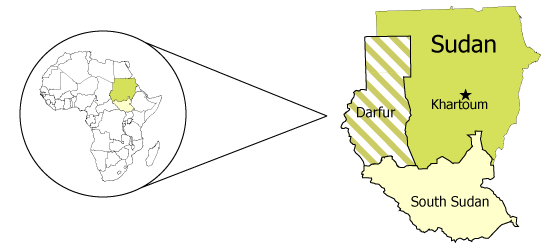Date: Thu, 19 Feb 2015 23:39:36 +0100
Exclusive: Sudan’s Bashir on ISIL, Darfur and accusations of genocide and war crimes
19/02 17:09 CET
Listen the whole Interview below:
https://www.youtube.com/watch?v=OdCXxYkNo1w
Related
In an exclusive interview with Euronews’ Mohammed Shaikhibrahim, Sudanese president Omar al-Bashir accuses Israeli and American secret services of supporting Islamic extremist groups such as ISIL.
Bashir defends himself against charges of genocide and war crimes brought against him by the International Criminal Court for atrocities in Darfur that he is said to have ordered (more context on that here).
He also shares his thoughts on the secession of South Sudan in 2011 and explains why he will be standing to run again for election later this year.
Who is Omar al-Bashir?
- Born in 1944 when Sudan was under Anglo-Egpytian control.
- Pursued a military career and served in the Egyptian army in the Arab-Israeli war in 1973. He was also involved in the fighting against armed groups from southern Sudan in the early days of the civil war.
- Took control of Sudan, then Africa’s largest country, in a military coup in 1989, later appointing himself president.
- Became the first sitting head of state to be indicted by the International Criminal Court on charges of mass killing and rape in Darfur.
On ISIL:
- Says that the CIA and Mossad are the only organisations with something to gain from the rise of ISIL
- Claims Israeli actions against Palestinians make it easier for ISIL to recruit
- Insists Sudan has succesfully tackled Islamic extremism on its soil thanks to re-education of young would-be jihadists
On genocide and war crimes charges:
- Denies ethnic cleansing in Darfur
- Says ICC accusations are politically motivated to provoke regime change
- Claims charges are part of an ‘anti-Sudan’ campaign
On secession of South Sudan:
- Says he has “no regrets” over South Sudan’s independence despite economic implications for Sudan
Watch the full interview in the player above
REPUBLIC OF THE SUDAN
IN FIGURES

(Sources: CIA factbook, Republic of Sudan Bureau of Statistics, IMF)
- Between 1899 and 1956, Sudan (incorporating modern-day South Sudan) was under joint British and Egyptian administration although in practice, as Egypt was a protectorate of Britain at the time, Britain maintained de facto control of Sudan.
- Egypt surrendered its theoretical sovereignty over Sudan following the 1952 Egyptian Revolution, a tactic designed by Egyptian nationalists to force Britain into relinquishing its control of Sudan. This succeeded and Sudan became an independent state – Africa’s largest until South Sudan’s independence – on January 1, 1956.
- Darfur – When Britain and Egypt took sovereignty over Sudan in 1899 they allowed the region of Darfur to run itself as an independent sultanate. However in 1916 Britain incorporated Darfur into Sudan to prevent it falling into the hands of the Ottoman Empire in World War I.
- South Sudan gained independence from Sudan on July 9, 2011, six months after a referendum in which 98.83% of the electorate in southern Sudan voted in favour of secession.
- Size: 1.86 million km2
- Population: 37.29 million (July 2014 estimate)
- GDP per capita: $1,793
- Median age: 19.1 years
- Literacy rate: 71.9%
- Religions: Sunni Muslim, small Christian minority
- Official languages: Arabic and English
Copyright © 2015 euronews